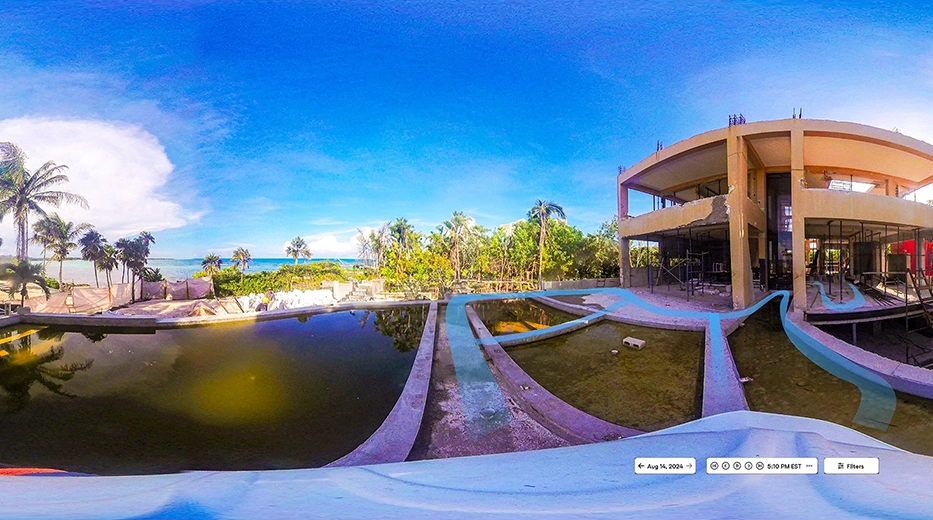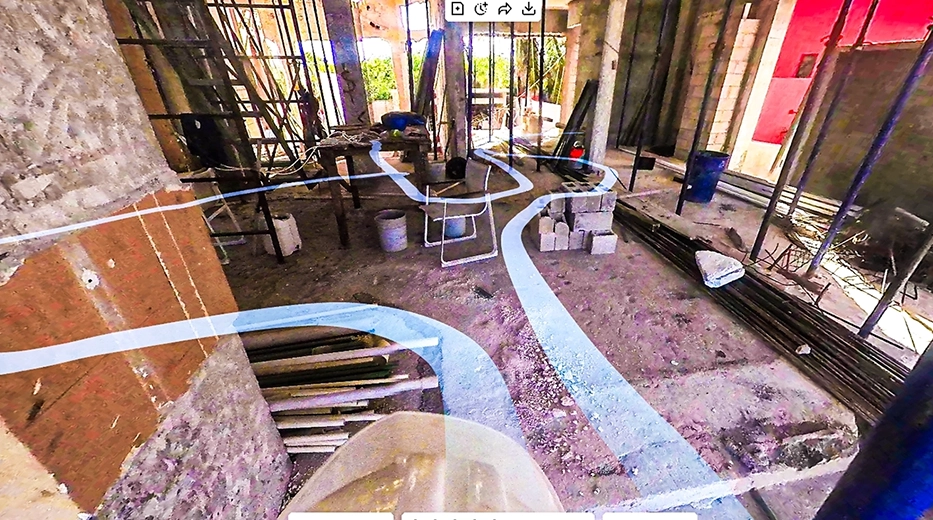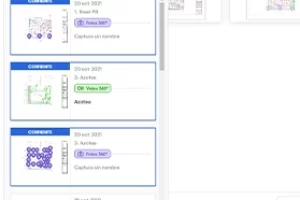

360-Degree Photography emerges as a distinctive resource in the field of architecture and engineering, its relevance magnified when integrated into the operation and maintenance phase of assets in sync with BIM models. By immersing in a three-dimensional environment, this technique grants a level of realism that establishes a notable contrast with the humanly limited vision.
The 360-degree capture technique expands the conventional visual limits of 180 degrees, allowing for complete panoramic documentation in all possible orientations. In the context of the construction industry, this tool strengthens digital photography, enriching professionals with a diversified range of fundamental visual resources.
Its implementation in operation and maintenance activities, especially when combined with BIM models, intensifies its effect by providing crucial perspectives for the strategic optimization of infrastructures, all backed by a clear technical advantage.

Immersive visualization of architectural designs to better understand the relationship between elements and assess visual impact.
Virtual inspection of the integrity and safety of complex structures before, during, and after construction.
Visual recording of each project phase, facilitating communication between teams and the analysis of potential adjustments
Detailed documentation of infrastructure works, such as roads and bridges, for supervision and monitoring of their evolution.
Creation of virtual tours for home buyers, allowing them to explore properties from any location.
Exhaustive evaluation of systems such as electricity, plumbing, and HVAC to detect potential issues before their implementation.
Enables virtual inspections of the construction site at any time, without the need to be physically present at the construction site.
Provides a detailed and complete view of the project, helping to identify potential errors and issues before they become costly mistakes.
Facilitates communication among the construction team, owners, and contractors, reducing the possibility of misunderstandings.
Helps to document the construction progress and maintain a visual record of the entire process.
Can help improve safety in construction by identifying potential hazards on the worksite.

360-Degree Photography emerges as a distinctive resource in the field of architecture and engineering, its relevance magnified when integrated into the operation and maintenance phase of assets in sync with BIM models. By immersing in a three-dimensional environment, this technique grants a level of realism that establishes a notable contrast with the humanly limited vision.

The 360-degree capture technique expands the conventional visual limits of 180 degrees, allowing for complete panoramic documentation in all possible orientations. In the context of the construction industry, this tool strengthens digital photography, enriching professionals with a diversified range of fundamental visual resources.
Its implementation in operation and maintenance activities, especially when combined with BIM models, intensifies its effect by providing crucial perspectives for the strategic optimization of infrastructures, all backed by a clear technical advantage.
Immersive visualization of architectural designs to better understand the relationship between elements and assess visual impact.
Virtual inspection of the integrity and safety of complex structures before, during, and after construction.
Visual recording of each project phase, facilitating communication between teams and the analysis of potential adjustments
Detailed documentation of infrastructure works, such as roads and bridges, for supervision and monitoring of their evolution.
Creation of virtual tours for home buyers, allowing them to explore properties from any location.
Exhaustive evaluation of systems such as electricity, plumbing, and HVAC to detect potential issues before their implementation.
Enables virtual inspections of the construction site at any time, without the need to be physically present at the construction site.
Provides a detailed and complete view of the project, helping to identify potential errors and issues before they become costly mistakes.
Facilitates communication among the construction team, owners, and contractors, reducing the possibility of misunderstandings.
Helps to document the construction progress and maintain a visual record of the entire process.
Can help improve safety in construction by identifying potential hazards on the worksite.
360-degree photography emerges as an essential tool in construction, surpassing conventional visual limitations and finding impactful applications across various industries. From progress tracking to remote inspection and effective client presentations, this technology redefines the way we conceive and execute construction projects.
If you want to harness these advantages to the fullest and transform your projects, we invite you to contact AEC Technology.